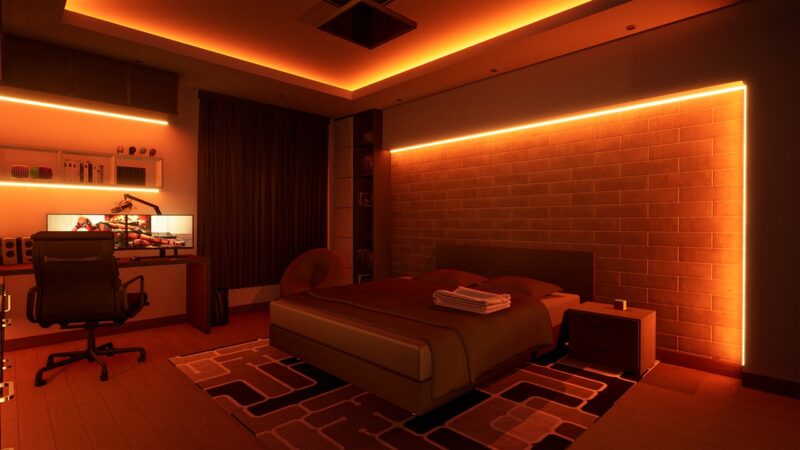The Pros and Cons of Building vs. Buying a Gaming PC in 2024
November 10, 2024

As the gaming industry continues to evolve, there’s a growing interest in how to maximize gaming performance. One of the most significant decisions a gamer can make is whether to build a gaming PC from scratch or buy a pre-built unit. In 2024, this topic has become even more relevant. With the latest technology, increasing accessibility to high-performance components, and the rapid advancement of gaming software, the choice between building and buying a gaming PC won’t be easy. Let’s break down the advantages and drawbacks of each approach to help you make an informed decision.
1. The Case for Building a Gaming PC
Building your own gaming PC has several advantages that can appeal to different types of gamers. Here are some key benefits:
- Customization: One of the most compelling reasons to build your own PC is the level of customization it offers. Gamers can select every component, from the CPU and GPU to the cooling system and power supply, ensuring that the build meets their specific requirements and preferences. Whether you want the latest graphics card or a specialized cooling system, building allows you to tailor your rig to perfection.
- Cost Efficiency: In many cases, building a gaming PC can be more cost-effective than buying a pre-built counterpart. You can shop around for deals, opt for slightly older components that still offer great performance, and avoid the markup associated with pre-built models. This can be especially important if you’re a student or on a tight budget, but you still want a high-quality gaming experience.
- Learning Experience: Building your own PC is an educational experience that allows you to gain knowledge about computer components, software, and overall system functionality. This understanding can pay dividends down the road, especially if you need to troubleshoot issues or upgrade your system in the future.
- Satisfaction: There’s a unique sense of accomplishment that comes from building your gaming PC. Watching each component come together and powering it up for the first time is a rewarding experience that many gamers cherish. This hands-on approach can also foster a deeper appreciation for the technology involved in gaming.
2. The Downsides of Building a Gaming PC
Of course, building a gaming PC isn’t without its challenges, and there are some potential downsides to consider:
- Time-Consuming: Building a PC takes time, from research on components to the actual assembly. For those with busy schedules or less interest in the technical side of gaming, this can be a burdensome factor. If you’re eager to jump into gaming as quickly as possible, waiting for parts and going through the build process may not be appealing.
- Potential for Errors: There’s always the risk of making mistakes when building a gaming PC, such as improperly seating the CPU, wiring components incorrectly, or failing to install cooling solutions properly. These errors can lead to poor performance or even hardware damage, which could be stressful for first-time builders.
- Lack of Support: When you build a PC, you’re typically on your own in terms of support. Should an issue arise, you’ll need to troubleshoot it yourself or find solutions online. This can be frustrating for gamers who prefer a more guided or straightforward experience when dealing with technology.
3. The Case for Buying a Pre-built Gaming PC
For many gamers, purchasing a pre-built gaming PC is an attractive option. Here are some of the benefits:
- Convenience: One of the most significant advantages of buying a pre-built gaming PC is the convenience it offers. You can simply select your ideal model, make the purchase, and wait for it to arrive ready to use. This eliminates the hassle of sourcing components, researching compatibility, and assembling everything yourself.
- Guaranteed Performance: Most pre-built gaming PCs come tested and with performance benchmarks, so you can feel confident that the system will perform well with your favorite games. This reassurance can prevent uncertainty regarding compatibility issues or subpar performance that might arise with a DIY approach.
- Customer Support: When buying a pre-built PC from reputable manufacturers, you typically can access customer support and warranties. If something goes wrong, you can reach out for assistance, making it a safer option, especially for beginners who may feel daunted by a DIY project.
- Pre-built Aesthetics: Many pre-built gaming PCs come with eye-catching designs, RGB lighting, and stylish custom cases. For gamers who want a visually impressive desk setup without the effort of customizing components, a pre-built rig is an appealing option.
4. The Downsides of Buying a Pre-built Gaming PC
Despite the advantages, purchasing a pre-built gaming PC does come with its own drawbacks:
- Higher Cost: Pre-built systems often carry a higher price tag compared to building your own. This price difference can vary based on the brand, features, and components included. For budget-conscious gamers, this might present a significant barrier.
- Limited Customization: While there are some customizable options available with pre-built models, the ability to select specific components is often limited. This can be frustrating if you have particular preferences for certain brands, features, or performance levels.
- Less Learning Opportunity: For gamers who build their own PCs primarily to understand the hardware and software involved, buying a pre-built machine doesn’t offer the same educational experience. This could be a disadvantage for those looking to expand their technical knowledge.
5. Making Your Decision: Building vs. Buying
When it comes to deciding whether to build or buy a gaming PC in 2024, the right choice often depends on individual priorities. Consider the following factors:
- Budget: Evaluate how much you’re willing to spend. If money is tight, building may save you more, while a larger budget could allow for a high-end pre-built system.
- Time: How quickly are you looking to get into gaming? If time is of the essence, buying a pre-built PC may be the best route.
- Technical Skill: Consider your comfort level with technology. If you’re tech-savvy and enjoy learning, building a PC can be rewarding. However, if you prefer simplicity, a pre-built option may suit you better.
- Future Upgrades: Building a PC may provide more options for expanding or upgrading components later. If you want a rig that can grow with your needs, consider building one yourself.
Conclusion
Ultimately, the decision between building and buying a gaming PC comes down to your personal preferences, budget, and time constraints. In 2024, both options have their compelling merits and disadvantages. Building your own PC offers customization and cost efficiency, while buying a pre-built system offers convenience and peace of mind.
That said, whatever path you choose, a gaming PC can open up a world of immersive experiences and enjoyment in the ever-evolving landscape of gaming. Choose the option that aligns best with your gaming aspirations, and get ready to enjoy all the thrilling adventures that await you in the gaming universe!







